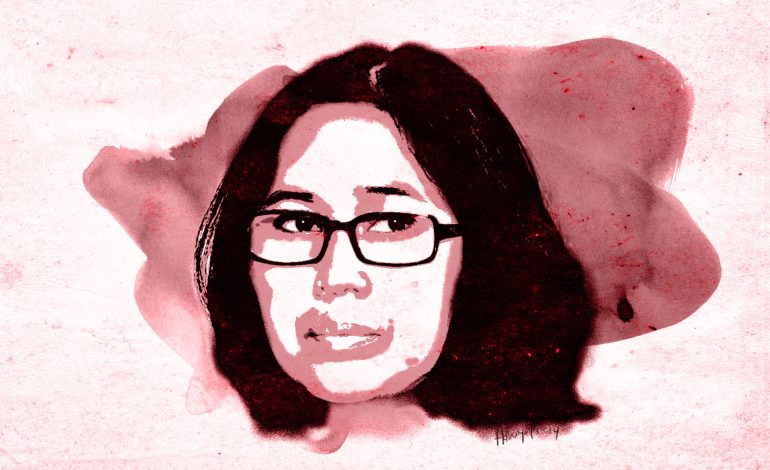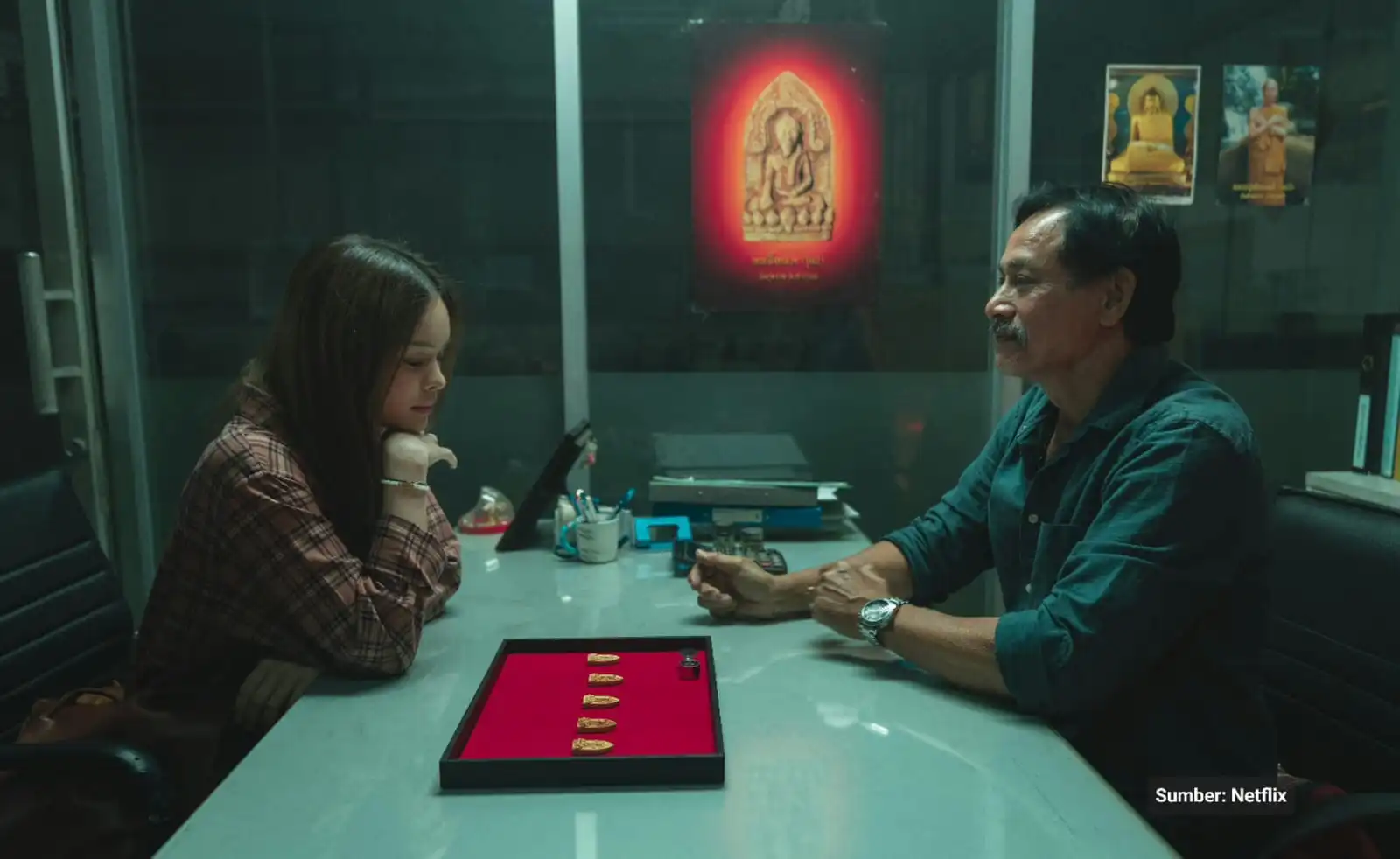An Unconventional Politician
One of Indonesia's uprising female politicians, Eva Kusuma Sundari is never afraid of being different. Unfortunately, she didn't make it to Parliament this time around. Find out why here.

Around midnight in late March, legislator Eva Kusuma Sundari was sitting under a makeshift tent deep in rural East Java, watching a ludruk show, a traditional dance and drama that she organized as part of her campaign to seek reelection at the House of Representatives (DPR).
When I joined her entourage a few hours earlier in Blitar, I had assumed that, like most high-ranking officials, she would merely make a perfunctory appearance, attending the opening ceremony, giving a speech and sitting for the first 30 minutes of the show. But it had been at least three hours since we arrived, and there were no signs that we would be leaving soon. Despite having been up and about since 5 a.m. that morning, she showed no signs of weariness, laughing along some 200 people in the audience, texting and live tweeting the event on her phones, and occasionally involved in serious conversations with local party cadres.
This was starting to look like a real all-nighter for us, and no one looked more disturbed by the possibility than her husband Jose Amorim Dias, East Timor’s Ambassador to Malaysia, who had visited to spend the weekend with her on the campaign trail.
In the past hour or so, he had been pestering her to leave, reminding her that they had another two-hour drive to her parents home, where they would stay the night before parting ways early the next day. He had an early morning flight back to Kuala Lumpur to catch in the next town of Surabaya. But Eva insisted on staying. She had sponsored this event to revive the local ludruk company, which, like the art form itself, was on the verge of dying, so the least she could do was show her appreciation.
One of the most prominent female politicians in the Indonesian Democratic Party of Struggle (PDI-P), Eva was running her third election since she was elected in 2004. Unfortunately, it was one she would eventually lose.
In the couple of days I joined her, she visited her electoral region of Kediri, Blitar and Tulungagung, meeting with a range of communities from farmers, former migrant workers, traditional performance groups, to the Catholic and Christian communities.
Unlike many incumbent legislative candidates who rarely met their constituents personally, handing the task to their well-funded campaigning teams, Eva visited remote villages and gave talks on political education on voting and the important issues of the day. She had teams of volunteers in different towns, but she mostly traveled in one car accompanied by a driver, an assistant and a local campaign manager, stopping when necessary to stay the night in a car or at a mosque.
“Lots of factors contributed to my defeat,” she told me recently after the official election results confirmed her loss.
“First, I didn’t give away money to the voters before election day. And when the votes were being counted, I didn’t pay polling officials, witnesses and monitoring committees to make sure I was safe,” she said, referring to the notorious vote-buying practice post-election.
Eva admitted that in the three legislative elections she had taken part in, it had gotten progressively harder for professional politicians like her to win an honest election. In 2004, the competition was between political parties because the system allows votes cast for parties to be distributed to candidates based on their number on the ballot lists. A change in system in 2009, however, shifted the competition to among party cadres, encouraging candidates to bribe voters and intensifying the climate of money politics.
“In 2004, I spent 225 million rupiah and got 28,000 votes. Five years later my expenses swelled four times to 1 billion rupiah, and I only got 38,000 votes.”
“It was a shocking experience because suddenly the voters became money-oriented, as they knew everyone competed against everyone, even within the same party.”
Learning from this experience, after her reelection in 2009 she maintained an active communication with her constituents in Malang to build loyal followers. She visited them regularly on alternate weekends or at parliamentary recess, during which she gave fertilizers to farmers, revived the local art communities and helped mediate land disputes. A year before the election, however, her electoral region were moved to the current one, forcing her to start from zero.
This year parties taking part in the election are also down from 24 in 2009 to 12, which required her to have at least 80,000 votes to secure a seat. And after spending nearly Rp 1.5 billion in campaign expenses, she won only half of the required votes.
“When a woman thinks she has to abide by what the society expects from her, like obeying her husband or being a good wife and mother, then her personal politics has defeated her political aspiration.”
That she was not elected is a loss for Indonesia. Unlike many female legislators – many of whom were elected because of their connections or because they were famous celebrities – who barely made a mark in Parliament, Eva has actively pushed for some important initiatives while in office. Among them is the establishment of the State Finance Accountability Committee in Parliament to stamp out corruption in the legislature, imposing a value system and regulating previously grey-area issues such as gratification.
But her most admirable work was her consistently vocal rejection of religious-based discrimination against women and the religious minorities, a preoccupation that has earned her the ire of Islamist groups.
Eva has been very critical of the government and political leaders for turning a blind eye on anarchic and violent-prone radical groups that persecute religious minorities. She also criticized the government for allowing regional administrations to adopt sharia-based regional bylaws that criminalize women for acts such as going out at night or wearing clothes deemed un-Islamic.
“We do not have a federal system, so the President should’ve been able to lift those regional bylaws on the ground that they’re unconstitutional. In 2004, the Home Ministry canceled regional bylaws that were not friendly to investment, why can’t they do the same about bylaws that are not friendly to women?” she said, adding it was all about political will.
Personal Politics
Previously a lecturer at state-owned Airlangga University in Surabaya and a gender consultant for a development agency, Eva has been politically active since her university days. But she admits if it weren’t for the 30 percent quota on female legislative candidates imposed in the 2004 election, she would have never joined politics.
“I never thought of joining a party, although I was active in youth movement group GMNI, which is ideologically close to the PDI-P,” she said.
“But I’m a professional; once I agree to do something, I have to do it seriously. So I do what serious politicians do, including regularly visiting my constituents to listen to their problems, and I have to sacrifice my privacy by being on call 24-7, even to journalists,” she said.
When asked how many of some 100 female House members has her work ethics, she shrugged.
“There’s probably only 7 percent female parliamentarians of quality, meaning what they do make impacts. Many women politicians become known more because of high politics, like their closeness to their party leaders, than because of their work,” she said.
Then there are personal limitations that prevent women from fully participating in public service.
“When a woman thinks she has to abide by what the society expects from her, like obeying her husband or being a good wife and mother, then her personal politics has defeated her political aspiration,” she said.
“She can never enter public politics, because the whole concept of being a good woman is a burden based on the presumption that women must take care of the kitchen.”
Many Indonesian women in top positions may share her thoughts, but most wouldn’t dare to speak out their minds like her. When asked by a Facebook user whether she could find time among her busy schedule to cook for her family, Eva replied tersely: “I have fought against (Muslim radical group) FPI and you still ask me if I have time to fry tempeh? If I have a maid, why I should add more burden by working in the kitchen? My husband never complains.”
Not that she has a conventional marriage anyway. Eva met her husband while both were studying for their master’s degree in the Netherlands, back when East Timor was still an Indonesian province. They married in 1993 and a year later had their daughter Maria. After East Timor broke free from Indonesia in 1999, the couple divorced, unable to decide a common future for their family. He chose his homeland and went into foreign services, while she stayed with their daughter.
Years later the two met again while he was stationed in Belgium and he proposed to her. The couple remarried, had Danny in 2004, and continued their long distance relationship. While Maria lives with her in Jakarta and has been raised a Muslim, Danny is raised Catholic in Kuala Lumpur by his father. But religion is never an issue in their household.
“As parents, we just accompany our kids in their paths, but the consensus is once they reach 18, they are free to choose their own beliefs,” she said.
This unconventional marriage didn’t go well with some of her critics, who doubt her patriotism because of her husband’s nationality, but Eva generally dismissed this concern.
“I don’t want to follow their logic. I show them what I have done, I asked them to show me what they have done. My husband may be a foreigner, but show me: have I ever been corrupt? Have I not been showing up at work? Have I not been consistent in what I do? Because at the end of the day, that’s what matters.”
So what will she do post-Parliament?
“I haven’t had time to think about it, but right now I’m back in Parliament and I just want to finish my term in good shape.”
With her active involvement in the presidential campaign of PDI-P’s candidate Joko Widodo, however, I have a feeling we’ll still hear from her.
Follow @dasmaran on Twitter













